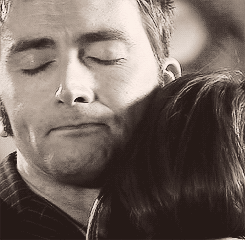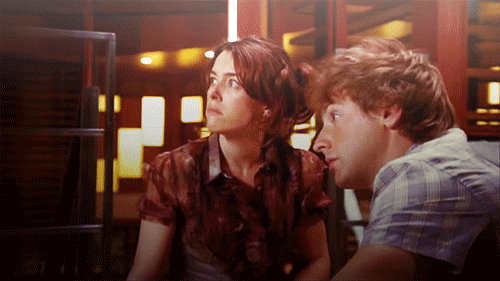When we last saw Johanna Morrigan, AKA Dolly Wilde, she had just been assigned an interview with musician John Kite, all expenses paid, in Dublin. This is her first time on a plane, first time out of the country, and she loves it. She meets Kite and finds him a real kindred spirit, someone who she can really relax around, have fun with, and she ends up besotted. John Kite seems charming enough, in a drunken-rock-star sort of way, but I don't trust him. I don't trust him at all. I feel sure that he's going to betray "Dolly" in some way and break her heart, turn out not to be the person she thinks he is.
Back in England, disaster strikes when her father receives an ominous brown envelope informing him that his claim for disability benefit is being investigated, and the family get a reduction of 11% in their income. 11% may not sound like the end of the world, but for a family with five children who have no luxuries, no savings, they just can't spare that money! "Dolly's" payment for her writing is slow to arrive, and after her first major feature turned out to be a page of gushing fangirling, the work dries up.
Her father makes another attempt at getting his music noticed, but I can't help but feel that if he is too sick to work a regular job - even a part-time one - would he be able to deal with the demands of working as a musician? I think he views "being a rock star" as an easy way out of his desperate situation, without thinking through the reality of the hard work required. Johanna is the only earner of the family: what about the mother, or the eldest brother? But it is easy to say "get a job!" yet last week we saw the extended family all made redundant by Mrs Thatcher's slashing of British industry. Just like today, the jobs just aren't there!
Still, "Dolly" eventually gets another phone call from the magazine and she goes back to London for some more work, where she gets some gentle pointers as to where she went wrong with the Kite article. She despairs for a moment when her teenage years of musical education just don't seem to be enough, and timidly asks if she can claim expenses for borrowing CDs for the library at 20p per time.
In reply she is told that all she has to do is phone up the record companies and get as much music as a person can handle for free, and even sell the CDs on afterwards: a tidy business plan that could solve all the family's troubles - or at least help a little. Then, on to her first music-industry party, where she pulls out all the stops in making herself seem as fun and quirky and loud as possible. I was cringing on her behalf at times - there is nothing less British than obviously trying too hard.
Still, her colleagues seem to find her amusing rather than embarrassment, and as she got into the character I found myself laughing aloud. I loved the scene with her carefully calculating how to not look like a pig at the buffet table, making up a fictional friend who liked different food from herself, then leaving the loathed scotch eggs in the ladies' room with an explanation that they were dragon eggs, about to hatch! (Query: is what she did really that different from pretending you're not home alone when you order a massive pizza and lots of sides from Domino's? I suspect it isn't.)
Key Quotes:
I don't want anyone watching me change. I will do all my changing in private. In public, I am, always, the finished thing. The right thing, for the right place. A chrysalis is hung in the dark.
I am getting incredibly high on a single, astounding fact: that it's always sunny above the clouds. Always. That every day on Earth - every day I have ever had - was, secretly, sunny, after all.
The house is too small, and nothing happens, and I will never be older than twelve here.
(Minor grumble: in typing up these quotes, I found myself wondering whether Moran really needs all those commas.)


















